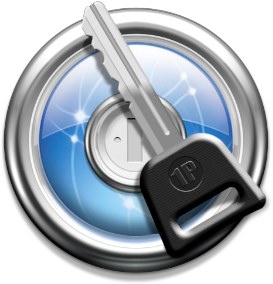
1Password is almost always the first app I install on a new machine. It’s my key to opening all of the necessary accounts and it holds all of my software licenses. It’s literally indispensable. I’m going to just go ahead and assume you use it or are at least familiar with it and move along.
You may know this already, but there’s a hidden gem in your 1Password keychain file. If you locate the 1Password.agilekeychain file (Preferences → General, first item) and right click it in Finder, you can view the package contents. Immediately inside you’ll see a file called 1Password.html. It’s a web-based means of accessing all your data without 1Password. Just open it in your browser and go.
Note that Google Chrome as of about v14 is horrible for running local files (and bookmarklets on SSL sites… another story). To avoid this, I launch Chrome with a wrapper script:
/Applications/Google\ Chrome.app/Contents/MacOS/Google\ Chrome --allow-running-insecure-content --allow-file-access-from-files &
If you don’t feel like dealing with command line flags, though, open your 1Password.html file in Safari. Whatever you do, don’t open it in Firefox — because that would mean you’d have to use Firefox. Just trying to keep you safe.
Mike Rose in the comments notes that you can use a Dropbox URL instead of accessing from the local file, avoiding the Chrome issues and alleviating the need to sync the keychain file locally. Smart one, that Mike Rose.
With this feature, you can get to your passwords even when you can’t run 1Password. Accessing your Dropbox-synced keychain file through the web interface is the most practical example. I’ve been setting up a couple of remote machines where I never intend to use the GUI and am trying to avoid installing apps in general. I install Dropbox, though, and I can get all of the info I need without installing 1Password everywhere.
Second use case: you use really long passwords and/or need to copy extremely long serial numbers when installing apps. You have 1Password on your iPhone, but it’s not doing you much good with things you can’t type, and you don’t have a clipboard catcher on the machine your working on.
Just the serial numbers, please
Don’t want to deal with syncing the keychain file, but need a bunch of serial numbers? Go to your Software folder in 1Password, select all and choose “Export Selected” from the File menu. Check the necessary fields (probably just title, registered email, registered name and license code) and export it as a plain text file. SCP/FTP that to a remote machine or put it on a USB drive.
Now you can just search for the software by name and get the registered name and serial number with almost zero hassle. I use bash function that runs a command like grep -i sublime licenses.txt | awk '{print $4}' | pbcopy to output just the serial number for Sublime Text 2 straight to my clipboard.
I don’t recommend doing this with your passwords. There’s a reason you keep those in 1Password and not strewn about on post it notes or in plain text files.
